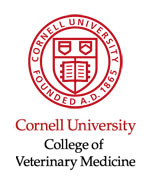Towards Implementation
of Commodity-Based Trade of Beef in the KAZA TFCA:
Opportunities for Integrating Livestock
Agriculture & Wildlife
Conservation
A KAZA Workshop, in collaboration with AHEAD & FAO
Victoria Falls, Zimbabwe, November
3-4, 2016
Download Workshop Proceedings
(PDF)

© S. Felton, WWF-Namibia
In November 2016, the Kavango Zambezi Transfrontier Conservation
Area (KAZA TFCA - http://www.kavangozambezi.org) Secretariat,
in collaboration with AHEAD (Animal & Human Health for the
Environment And Development – a programme of Cornell University
and the Planetary Health Alliance) and FAO (the Food and Agriculture
Organization of the United Nations), with additional support
from the Rockefeller Foundation and GIZ, hosted the above-mentioned
workshop.
More than 100 invited delegates from the livestock
agriculture and wildlife conservation sectors from the five KAZA
TFCA partner countries and further afield, including government
officials, representatives from affected farming communities
and the private sector, researchers, NGOs, International Cooperating
Partners and colleagues from regional and international regulatory
bodies, converged
at this forum to discuss important opportunities associated with
changes to international disease management standards pertaining
to beef trade – ones that facilitate an approach to beef
production that is more compatible with wildlife conservation,
and that don’t completely rely on landscape-fragmenting
fencing.
Basis for the meeting:
One of the objectives of KAZA as listed in the Treaty (2011)
is to “promote and facilitate the harmonisation of relevant
legislation, policies and approaches in the area of transboundary
animal disease prevention, surveillance and control within the
KAZA TFCA.” However, within KAZA, wildlife and livestock
production are in conflict due to the prevalence of animal diseases – especially
foot and mouth disease (FMD) – that can be transmitted
between wildlife and livestock. This situation restricts market
access and constrains the success of livestock owners who share
the land with wildlife. In addition, attempts to meet international
standards related to "freedom from disease" under currently
applied policies for addressing FMD have had significant negative
repercussions for free-ranging wildlife, largely related to disease
control fencing.
Fortunately, scientifically sound and equally
effective non-geographic (i.e. non-fence based) approaches to
managing risks from diseases like FMD now exist. Commodity-based
trade (CBT) approaches focus on the safety of the beef production
process, rather than on the animal disease situation in the locality
of production. Furthermore, in 2015 the international sanitary
trade standards adopted by the OIE (World Organisation for Animal
Health) were amended to remove certain restrictions on the trading
of beef derived from areas where wildlife maintains FMD viruses.
All of this provides a timely opportunity to rethink the region’s
approach to FMD management.
|











